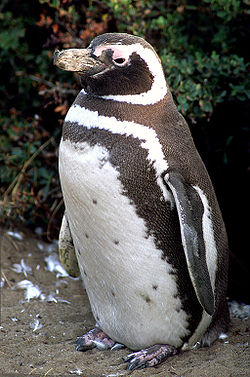Tag Archives: penguin
Five Penguins Win Endangered Species Act Protection:
Five penguins species are finally getting a new lease on life, after being awarded protection under the U.S. Endangered Species Act. This protection is being awarded after a 2006 petition initiated by the Center for Biological Diversity, in conjunction with two lawsuits which were filed together with Turtle Island Restoration Network.
The decision made by the Interior Department will finally put the Humboldt penguin of Chile and Peru, and four different New Zealand penguins, on the threatened list.
“Protecting these penguins under the Endangered Species Act gives them a renewed chance at survival,” explained Shaye Wolf, Center biologist “Unfortunately, in today’s finding the Obama administration failed to acknowledge climate change as a threat. This administration won’t be able to help penguins survive the climate crisis if it doesn’t admit that it’s a problem.”
These penguins are acing some very real threats from things such as ocean acidification, climate change, and commercial fishing. The designation handed down today will hopefully raise awareness about the situation these penguins face on a day to day basis, increase funding for research and conservation, and provide additional scrutiny of any U.S. government approved activities which could cause harm to both the penguins and their respective habitats.
With the oceans warming up, the sea ice melting, and overfishing, the penguins food supply of kril and fish is more scarce then ever..
It’s about time something was done about the problem, let us hope it isn’t too late..
Hundreds Of Dead Penguins in… Brazil??
This is kind of weird… Apparently there are hundreds of dead penguins, who look like they’ve starved to death, are washing up on the beaches of Brazil of all places. This is very worrying for scientists on many levels, however the main focal point is just what is causing then to perish.
Somewhere in the neighborhood of 500 of the flightless birds have been found over the past week and a half on Peruibe, Praia Grande, and the Itanhaem beaches in Sao Paolo State. This comment comes from Thiago de Nascimento, who is a biologist with the Peruibe Aquarium.
The majority of these penguins were Magellan penguins, on their way north from Argentina, Chile and the Falkland Islands, searching for food in warmer waters.
What is so troubling scientists so much, is that many of these penguins are not finding the food they seek. Autopsies performed on many of the penguins revealed that their stomachs were entirely empty..
Researcher are investigating whether the fault lays in strong currents, or colder waters than what have been the norm, which may have caused the species the penguin relies on for food to thin out, or if maybe human activity is to blame.
“Overfishing may have made the fish and squid scarcer,” Nascimento has explained.
He also said that it is common for penguins to make their way north this time of the year. Unfortunately, some of them do happen to lose their way and perish from hunger or exhaustion, and then wind up dead on the Brazilian coast far from their homes.
However, in these numbers it is a grave concern… Hopefully they find an answer soon, before these creatures wind up the going the way of the do do bird.

